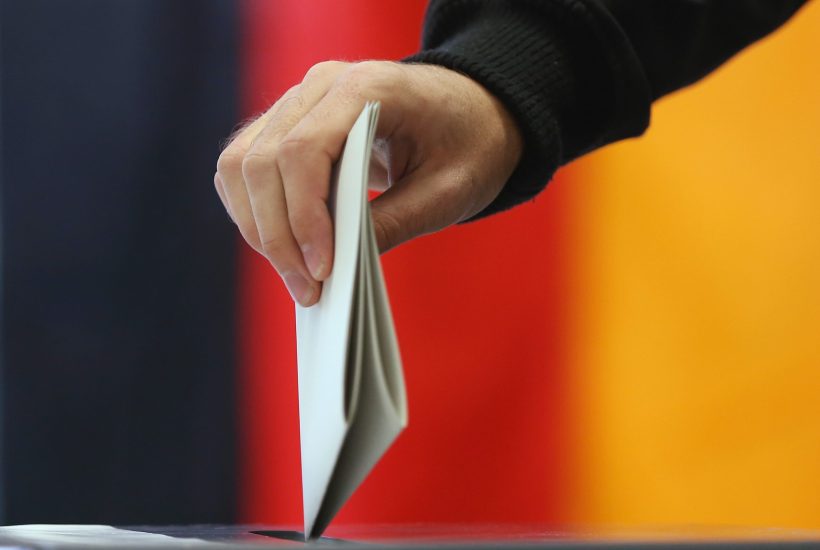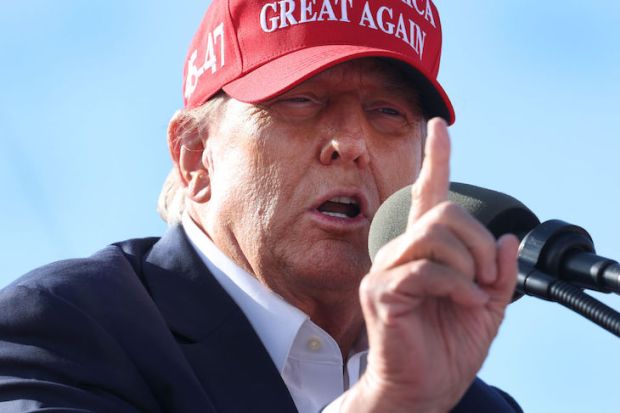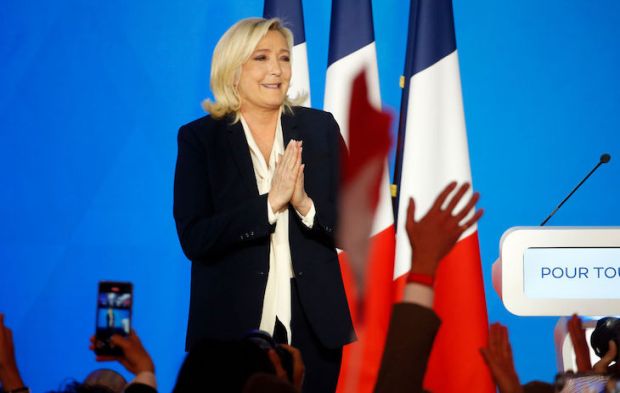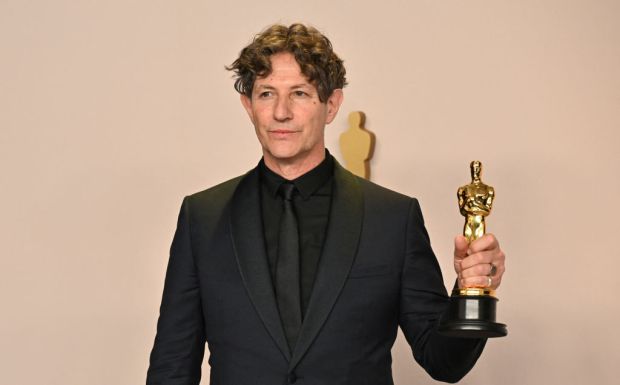The gloves are off in Germany’s electoral race. As personal insults are traded and skeletons dragged from their closets, even the German president — a figurehead who normally stays above politics — has urged all parties not to let the campaign descend into ‘mud-slinging’. In a rare political intervention, Frank-Walter Steinmeier warned that ‘measure and reason’ were preconditions of a functioning democracy. What had happened to cause the head of state such concern?
The German Green party has long complained that their leader Annalena Baerbock is being subjected to a sexist smear campaign. Her party’s inexperienced spin doctors suddenly had a wave of allegations to deal with — from inaccuracies in their leader’s CV to revelations that she had forgotten to file her income declarations. Baerbock and her allies defended these incidents as harmless oversights and complained that male contenders for the chancellorship were not subjected to such pernickety scrutiny.
Indeed, the campaign has been costly for Baerbock’s personal reputation as well as her party’s standing in the polls, which now show a drop under the 20 per cent mark (from a high of around 26 per cent when Baerbock was first nominated as the Green chancellor candidate). There are fears of a repeat of the Green nightmare at the election eight years ago where they were hoping for 20 per cent and came in at eight.
This drop in popularity has nothing to do with ‘mud-slinging’. Instead, Baerbock is increasingly seen as a political lightweight. Her attempt to bolster her credentials with a newly released book called Now. How We Renew Our Country backfired when it turned out that it contained large sections of plagiarised material. Factual inaccuracies in interviews and speeches — as well as her supporters’ complaints of unfair criticism — have not helped build an image of a competent and robust leader. The president of the Bundestag, Wolfgang Schäuble, spoke for many Germans when he commented that: ‘The old saying applies: If you can’t stand the heat, you have no business in the kitchen.’
A Berlin friend who usually hovers between the centre-left Greens and Social Democrats (SPD) tells me that she ‘really wanted to like Baerbock. She seemed young, fresh, modern, just what we needed. But the more I see of her the less I like her.’ This seems to reflect a general trend — the perceived hubris of the Greens has become a real problem for them. Even Berbock’s co-leader Robert Habeck argued in a recent interview that the party must be careful not to come across as ‘know it alls’. However, he batted off questions from journalists as to whether he might want to take over from his colleague as the Green chancellor candidate.
Neither has Merkel’s party covered themselves in glory. As usual, the Christian Democrats will spend €20 million on their campaign (compared to €12.5 million for the Greens). Keen to show that they understand ‘ordinary’ Germans, the party decided to spend some of this money on posters featuring nurses, families and police officers. There was much embarrassment when it was revealed that they did not bother to find any ‘real’ people for the ad and instead dressed up party staff and their friends to model for the images. The police, in particular, were so outraged that they threatened legal action.
However, so far poster-gate does not seem to have done much harm to the CDU/CSU campaign. The party saw their poll rating dip earlier this year when the Rhinelander Armin Laschet was selected as the chancellor candidate over the far more popular Bavarian Markus Söder. But many German voters have slowly begun to reconcile themselves to the only option on the conservative table. While Laschet comes across as a bland career politician, his party’s experienced campaign machinery keeps things ticking over. By contrast, one imagines a frantic Green anthill behind the scenes of Baerbock’s party.
Experience and professionalism have allowed the conservatives to weather this electoral storm. It was easier for Baerbock and Habeck to pull off their harmonious image before the pressures of the campaign kicked in. They have, it seems, since drifted apart. Laschet and Söder meanwhile don’t wash their dirty linen in public. They come across as a united front despite their intense personal rivalry and differences in policy. While the party is polling poorly — at just 28 per cent — the trend is upwards and tactical voting might also work in their favour.
Meanwhile, the SPD and their uninspiring candidate Olaf Scholz are set for disaster. Their self-perception as a people’s party was once borne out by reality — they provided such iconic chancellors as Willy Brand and Helmut Schmidt. Having been punished at the last election for their coalition with the CDU/CSU, the party received their lowest postwar result at just 20 per cent in 2017. Now, they are set for even less — around 15 per cent. One wonders why their opponents even bothered trying to create a scandal over the fact that Olaf Scholz used civil servants to work on the SPD’s campaign. If nothing changes, the party will only retain their hardcore supporters who vote for them because they have always done so.
Many Germans look at this political offering in despair. In a survey last week, a staggering 40 per cent of people said they would not vote for any of the three main candidates if they were given a direct vote. Neither Laschet (25 per cent), Baerbock (19 per cent) or Scholz (16 per cent) can inspire more than even a quarter of the German public. This throws the accuracy of polling into question: political fatigue means volatile turnout. Germans have always tended to see voting as a civic duty and most will turn up to the polling booths in September. Many, however, will vote tactically to avoid or support certain coalitions, making the outcome very difficult to predict.
What is certain is that the field in the German elections is still wide open. On the whole, the German public are a well-educated and politically interested bunch. To claim that they will decide who will lead their country on the basis of political ‘mud-slinging’ is patronising. The Green co-leader Robert Habeck was onto something when he urged his party to talk about real issues. People are not frustrated with the tone of the campaign but with its lack of content.
Got something to add? Join the discussion and comment below.
Get 10 issues for just $10
Subscribe to The Spectator Australia today for the next 10 magazine issues, plus full online access, for just $10.




















Comments
Don't miss out
Join the conversation with other Spectator Australia readers. Subscribe to leave a comment.
SUBSCRIBEAlready a subscriber? Log in